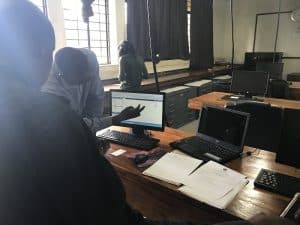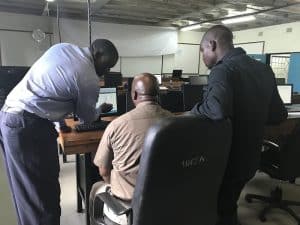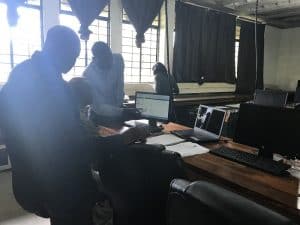Africa wants to be a digital economy, but someone has to build it. In recent years, Africa has tried to build its version of Silicon Valley at the tip of Africa, creating hubs in Cape Town and Johannesburg for startups and tech innovators. But, like Silicon Valley itself and more advanced economies, Africa has a chronic shortage of developers, the would-be architects of this digital economy.
The shortage of tech talent in Africa is closely linked to the continent’s infrastructure, or lack thereof. As Africa’s most advanced economy, South Africa already has a solid foundation in industries such as financial technology, banking services and industrial-scale manufacturing, so the country should be best placed on the continent to train the next generation of programmers for the digital epoch. Yet, despite being a relatively new industry, South Africa’s tech environment has not escaped the country’s historical handicaps.
This is a direct threat to the future of mining in Africa. The mine of the future will be much more sophisticated, it will be a balancing act between skilled labour and automated services. Both being necessary for improvements in safety and efficiency.
The fact of the matter is the history of Education in Africa has been a fluctuating endeavor, with most of the population still not literate and an even larger number that isn’t computer literate. Even today there are miners running operations without the basic knowledge of how to operate a laptop or computer.
With many Universities and Technical Institutions using outdated methods to teach, not due to incompetence but rather the lack of resources available. Some institutions have been provided with the modelling and mining software from some of the top software providers in the industry, but unfortunately this is being used more as a marketing tool and the providers don’t offer the institutions with any support or training. The institutions therefore cannot use it in their courses due to the lack of training and the correct computer resources available. Mining as an Educational path is a cyclical one, with many Universities claiming that their student registrations differ drastically according to mining trends both locally and globally. This in turn leads the faculty to limiting the money spent on mining related courses.
Despite an increasing number of initiatives, training the next generation of developers remains difficult. While many talented programmers are trained by Africa’s globally competitive universities, the gaps in South Africa’s public education system means so many potential geniuses may never get to code a single line.
MICROMINE has been trying to fill this gap by providing Educational Institutions across the globe with Educational licences for students and lecturers to gain access to an industry leading software before they enter the working world. One of the issues faced, is that students are being taught all the theoretical information they need and being provided with the necessary in-filed practical knowledge from a “rock kicking/ rock licking “point of view, but what they are not receiving is training in the way the mines of today are operating – with software. Mines today heavily rely on software to make an operation more efficient, productive and flexible. Mining of the future is heavily based on digitization through software and if Universities do not adapt, they are going to be making the task ahead for students, that much harder.
Educational Institutions need to assess the skills requirement for the ‘future-mine’ and be able to give the ‘future-miner’ the tools necessary to have the best chance in the working world.










